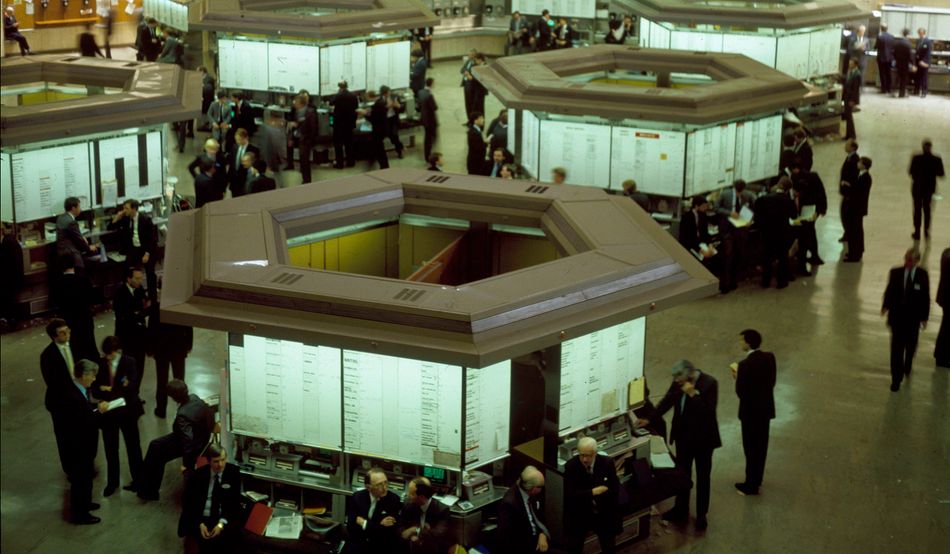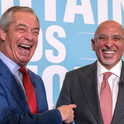Of all the indications of Britain’s current malaise—crumbling infrastructure, hospital waiting lists, sewage in rivers—none better encapsulates the country’s challenges than the stock market. Yet this traditional barometer of the economy’s health was barely mentioned during the election campaign. That it receives so little public attention is a reflection of how poorly the country understands this industry, which provides 10 per cent of its GDP and 12 per cent of its taxes. It is a marker, too, of how much we have come to take the sector’s success for granted.
The uncomfortable truth is that, over many years, London has been by far the worst performer of any major stock market. Since the Brexit referendum in 2016, the FTSE 100 is up 25 per cent. In contrast, the DAX 40 of leading German shares is up 88 per cent, the FTSE MIB of Italian shares is up 106 per cent, the Nikkei 225 index of Japanese shares is up 155 per cent and the S&P 500, which tracks the performance of the largest publicly traded companies in the United States, is up 169 per cent. UK-listed shares are now valued at much lower multiples of forecast earnings to those traded on other major markets. According to Bank of America, UK stocks trade at a 16 per cent discount to the rest of Europe. Compared with US-listed shares, the discount is close to a record 46 per cent. Before Brexit, they traded at similar valuations or even at a premium.
A brief rally earlier this year sparked hopes of a shift, but it was a false dawn. While the FTSE 100 hit a record high other markets rallied too, so the gap in value between shares traded in the UK and elsewhere persists. Since the start of 2024, the FTSE 100 is up 5 per cent, but the DAX 40 of German shares is up 8 per cent, the Italian market is up 10 per cent, the Japanese market is up 20 per cent and the S&P 500 is up 15 per cent. For years, bullish brokers have insisted that UK stocks are undervalued; their attempts to talk up the market continue to be ignored. Domestic investors have pulled money out of the market for 36 consecutive months, even as prices were rising. Since 2016, they have withdrawn more than £80bn from UK stocks.
Companies have been voting with their feet, too. Flutter, the betting group, and building materials group CRH have moved their listings to New York. Shell, one of the largest companies listed in London, is reportedly deciding whether to join them. Low valuations have turned others into takeover targets: an offer on Royal Mail was accepted in May, and Hargreaves Lansdown, a financial services company, and Darktrace, a cyber security business, are among those on the receiving end of bids this year.
Meanwhile new listings have slowed to a trickle. ARM Holdings, the chip giant, chose to list in New York; CVC, a private equity firm, listed in Amsterdam. In May, for the first time, London dropped out of the top 20 destinations for an initial public offering (IPO)—where shares are offered for sale to investors—based on capital raised, ranking joint 21st with Kazakhstan. The number of companies listed in London has halved since 1997, making London the only major stock market whose capitalisation has fallen as a percentage of GDP in the past 20 years.
It is hard to overstate the anxiety this is causing. Bankers fear a spiral whereby low valuations lead to fewer listings, triggering less analyst coverage, which in turn would lead to less trading and even lower valuations. At the smaller company end of the market, an entire ecosystem is at risk. More broadly, the downturn has implications for the wider City. The stock market is where the core strategic relationships between business and finance are forged, links that create lucrative work for armies of bankers, lawyers, brokers, analysts and PR consultants—not to mention restaurants, hotels and other service providers catering to the financial elite. Lower share prices also have economic consequences, raising the cost of investment for British companies.
What explains this dismal performance? Some point to the political chaos of the past eight years and hope that a return to stability will improve sentiment. However, it would take a huge recovery to unwind the valuation discount. Others blame the growing regulatory burdens placed on public companies, which have pushed many into the arms of private equity, but that is a global phenomenon. Instead, this trend is best seen as a verdict on Britain’s economic model, which emerged 40 years ago, largely by accident.
The origins of that model can be traced to the birth of shareholder capitalism in the 19th century. Joint stock companies owned by large groups of shareholders had existed before then, playing a significant role in Britain’s colonial adventures in the form of notorious entities such as the slave-trading Royal Africa Company. They played less of a part in the domestic economy, however, where the capital needs of early industrial ventures were small and could be met by local partnerships. Besides, joint stock companies were effectively outlawed in the early 18th century, following the South Sea Bubble, an episode of speculative mania that ended in mass bankruptcies. Under the Bubble Act 1720, a company could only be established with a royal charter.
That began to change with industrialisation. The capital required to build, say, a railway was beyond the capacity of local partners. Parliament came under pressure to liberalise the rules on company formation, leading to the repeal of the Bubble Act in 1825. But the real breakthrough was the 1862 Company Act, allowing companies to be established with limited liability. Investors were no longer on the hook for the whole of a firm’s debts, only losing what they had paid for their shares. This resulted in an explosion in the number of companies.
There were similar developments in the US and Europe, but the way that shareholder capitalism developed in Britain was distinctive, reflecting its status as the first country to industrialise. Even as the old industrial partnerships converted to limited liability companies, most remained conservatively run, keeping investment rates low and retaining family control. Instead, the focus of British stock market activity was on international investment. As David Egerton noted in The Rise and Fall of the British Nation, “In 1914 British capital owned the infrastructure, the banks, the ships, the communications of half the world.”
In America, stock market action was focused on the vast continental market—including efforts to control that market through the creation of “trusts”. In much of Europe, on the other hand, the stock exchange played a more limited role. For late entrants to industrialisation, the scale of investment required to play catch-up with Britain led to banks and governments being central to the development of new national champions, typically retaining tight control of the shares. Crucially, the US and European markets were highly protected. Only in free trading Britain were they exposed to the full force of global competition.
Britain’s vibrant stock market made possible another innovation that contributed to its distinctive model of shareholder capitalism. From the early 20th century, some companies started to establish funds to pay for pensions for their employees, which they invested in shares. As companies grew larger and employed more people in the following decades, the scale of these funds grew. By the 1970s, private company pension funds were the biggest owners of UK shares, creating a deep and liquid pool of capital to fund domestic industry. That was in contrast to much of Europe, where pensions tended to be invested in government debt, or were directly paid by the state. Only American and the Netherlands have anything comparable.
It was this inheritance that made possible the emergence of a new economic model in the 1980s and 1990s. Yet it emerged largely by chance. Margaret Thatcher is credited with reviving the City, which had spent decades in the doldrums following the breakdown in global trade after the First World War, but this was not her goal. Thatcher’s priority was that of all post-war governments: to improve the competitiveness and productivity of industry. By 1979, past experiments with protectionism, nationalisation and planning had led to the ignominy of an International Monetary Fund loan and the winter of discontent.
Her solution was a return to market forces. Three policies were decisive. The first was the abolition of exchange controls in 1979, which removed all restrictions on the movement of capital in and out of Britain. This was critical to London’s rebirth as a global financial centre. But as Jack Copley shows in his book Governing Financialization, the aim of the policy was to weaken the pound. Ministers were worried that the strength of sterling as North Sea oil and gas production soared in the late 1970s was undermining the competitiveness of industry, a phenomenon known as “Dutch disease”. They expected that lifting controls would cause capital to flow out of Britain, not into the City.
The second was known as “Big Bang”, a 1986 package of reforms to the stock market that came to be seen as one of the defining moments of the Thatcher era. The policy swept away fixed commissions, shifted trading from the floor of the stock exchange to computer screens, and opened the market to foreign banks. Yet the ground for the Big Bang had been prepared under the previous Labour government. The Office for Fair Trading (OFT) had decided to bring charges against the London Stock Exchange under restrictive practice laws. Its goal was not to boost the City but to reduce costs for businesses and investors. Indeed, Crash Bang Wallop by Iain Martin, a chronicle of these reforms, reveals that if the OFT had not already initiated court proceedings, Thatcher’s ministers would have ended the legal action, allowing the stock exchange to cling to its anti-competitive, cartel-like practices.
The third reform was the Thatcher government’s privatisation programme. The sale of utilities such as British Telecom (privatised in 1984) and British Gas (whose IPO was advertised with the 1986 “Tell Sid” campaign, encouraging the public to buy shares) was the largest London had ever seen. This was a boon to the City and thrust the stock market to the centre of public attention. The goal was to transfer responsibility for the strike-prone nationalised industries to the private sector, which it was hoped would improve efficiency while maintaining and upgrading infrastructure. Privatisation made it possible to cut taxes, which Thatcher believed would also benefit industry, not least as a new shareowning democracy invested the extra income in the stock market.
What is striking is the extent to which Thatcher’s programme failed on its own terms
Yet what is striking is the extent to which Thatcher’s programme failed on its own terms. Far from revitalising domestic industry, her policies led to the devastation of swathes of the old industrial economy, bringing wide regional disparities that persist to this day. The privatised utilities did not maintain investment in national infrastructure. Lower taxes did not lead to increased saving and investment, instead fuelling a consumption boom that sucked in imports. That left the country obliged to borrow from abroad to fund persistent current account deficits. Over the past 40 years, Britain’s record of investment in infrastructure and R&D has been among the weakest of any major economy.
Even in the City, the full impact of these reforms was not immediately apparent. Sure, the 1980s were a wild time in the Square Mile, not least as deep-pocketed foreign banks paid over the odds for City brokerages, making millionaires of their partners. Fortunes were also being made on the growing Eurobond market, which emerged in London in the 1960s, and in foreign exchange, as other countries dropped their exchange controls. Yet the party ended with the 1987 stock market crash, which brought a collapse in profits and mass redundancies. The City’s core business remained national, but the country’s economy was on its knees until the early 1990s amid a recession triggered by Thatcher’s policy failures. When I joined as a trainee analyst in January 1993, the City had none of its 1980s swagger.
What transformed Britain’s fortunes—and rescued Thatcher’s reputation—were two global developments after she left office. The first was the fall of the Iron Curtain. As dozens of newly independent countries emerged from communist rule, the City found itself with one of the greatest business opportunities in modern history. These new states needed capital to fund the modernisation of their economies—and in privatisation, the City had the answer. What had been a domestic solution to a domestic problem became a chance to export Britain’s model of shareholder capitalism to the world.
The second global development was no less a business opportunity. The creation of the single European market was one of Thatcher’s greatest achievements, albeit one she came to regret. Indeed, she refused to appoint Lord Cockfield, a driving force behind the 1986 Single European Act, to a second term as Britain’s EU Commissioner after accusing him of “going native” in Brussels. But the sweeping away of internal market barriers after the Act came into force in 1992 not only led to the rapid consolidation of European financial services activity in London, it also created masses of lucrative work for London-based professionals as the European industry reorganised itself along pan-European lines. The City was to get a further boost from the creation of the euro, which led to the emergence of a vast, pan-European bond market.
So successful was this new economic model that it transformed political debate in Britain. The focus switched from worrying about chronic underinvestment and weak productivity to how to redistribute the riches flowing from the City. Yet the old problems never went away. That started to become clear in the aftermath of the global financial crisis in 2008, as tough new regulations led to a collapse in the productivity of the banking sector, exposing the weakness of productivity in the wider economy. Now the growing crisis in the stock market is flashing fresh warning signs of trouble ahead.
One problem is the erosion of much of what gave the City an edge over its rivals. The deep pool of pension fund capital that underpinned Thatcher-era privatisations and acted as a magnet for international listings has evaporated in response to changes to tax, regulatory and accounting rules. Almost all private sector defined benefit schemes have been closed to new members and their funds invested in bonds which offer predictable returns. Just 6 per cent of UK pension fund assets are invested in UK stocks today, compared with 53 per cent in 1997. Meanwhile, the non-dom tax regime that made Britain a haven for rich foreigners has been scrapped, undermining London’s appeal to high-earning financiers.
Then there is Brexit, which ripped the City out of the European single market, creating new barriers to trade. So complacent was Boris Johnson towards the country’s most successful industry that the former prime minister didn’t even try to negotiate a financial services deal as part of his post-Brexit trade agreement with the EU. Now European rivals have an opportunity, and are using a mix of regulatory sticks and financial carrots to lure business and jobs back to Paris, Frankfurt, Amsterdam, Milan and Dublin. At the same time, the chaos that followed Brexit undermined confidence in the UK’s stability. The stock market underperformance began immediately after the 2016 referendum.
London cannot rely on homegrown companies to revive the stock market’s flagging fortunes, either. The biggest IPO so far this year was Raspberry Pi, an affordable computer supplier, with a market valuation of just £700m. No British company considering an IPO this year is likely to be valued above £4bn. In contrast, the two biggest IPOs in Europe this year have been Puig, a Spanish beauty group listed in Madrid and valued at £12bn, and Galderma, a Swiss skincare company listed in Geneva worth £13bn. The City’s hopes of rescuing the stock market from another dismal year hang on securing a £50bn listing of Shein, a Chinese fashion retailer rejected by the New York Stock Exchange over allegations of forced labour.
It is hard not to see this thin pipeline as symptomatic of wider problems. Britain may be successful in producing so-called unicorns, but too often a lack of early-stage capital means that tech start-ups valued at more than £1bn look abroad or to foreign buyers to scale their businesses. Few of Britain’s biggest companies are committed to the domestic economy, either. Much of British industry is now in foreign hands. Around 80 per cent of the revenues of FTSE 100 companies are earned overseas. In any case, the services in which Britain specialises, such as the creative industries, are hard to scale into valuable businesses.
The danger for London is that it no longer has a unique selling point, says Craig Coben, the recently retired head of European equity capital markets at Bank of America. That’s a particular problem given that most of the world’s major fund managers allocate their capital globally. With Britain now accounting for just 4 per cent of global market capitalisation, it has become a place investors can afford to ignore. Few of London’s listed companies offer exposure to global trends that cannot be found elsewhere. The FTSE 100 does not contain a single pure tech company. Coben even likens the excitement earlier this year at a brief rally in the index to “terminal lucidity”, a temporary return to consciousness before death, given it was driven by takeover speculation that would have seen more companies leaving the market.
Most of the ideas suggested for reviving the stock market amount to clutching at straws. The last Conservative government’s grandly named “Edinburgh Reforms” are little more than regulatory tinkering. There are also plans to loosen some requirements to make London a more attractive place for riskier companies to list, though weakening investor protections could backfire. The same goes for easing capital requirements for insurers. There are demands for tax breaks to encourage investment in UK shares. There have even been calls to force pension funds to invest in UK assets, which would be akin to reintroducing the exchange controls that Thatcher abolished.
All of these treat the symptoms, not the cause, of Britain’s economic malaise. As Thatcher used to say, you cannot buck the markets. No amount of government intervention is going to succeed in artificially inflating the value of the UK stock market. Nor can it hide the fact that London must compete with other jurisdictions that now offer the deep pools of capital, the tax breaks and the large domestic market with strong local companies that used to be its biggest selling point. Having exported shareholder capitalism to the world, Britain through its own policy choices has undermined the model.
In the process it has brought into focus the challenge that used to dominate politics before Thatcher’s accidental revolution: how to reverse the country’s chronically weak productivity and low investment rates so that it can produce homegrown companies that attract global interest. The stock market’s failure is signalling, loud and clear, that this is the task facing the new government.













